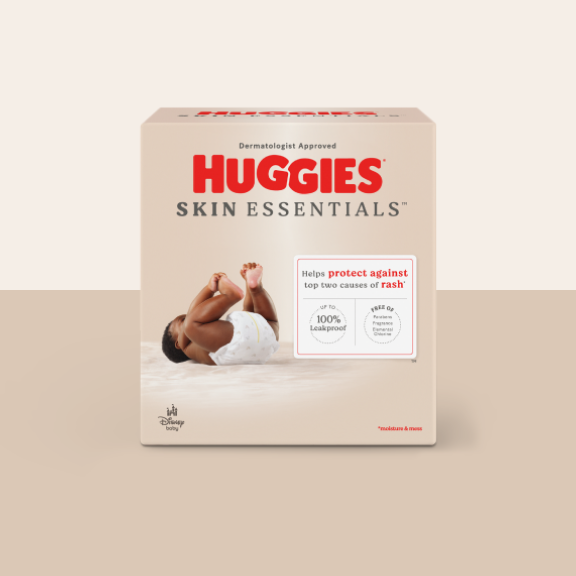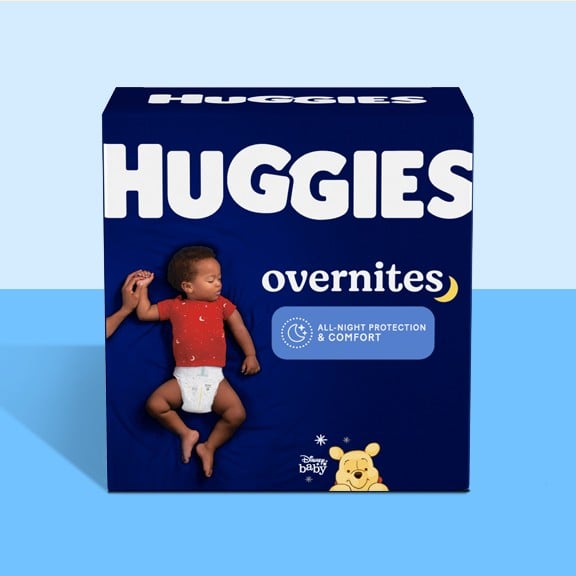When to pack your hospital bag
Interactive hospital bag checklist
Interactive hospital bag checklist
DownloadHospital bag for mom:
Hospital bag for baby:
Hospital bag for your partner or support person:
Items mom needs in her hospital bag for labor
Several pairs of button-front pajamas or nightgowns: If you are planning on breastfeeding, pack at least 1 pair of pajamas or a nightgown for each day you think you will be in the hospital, and then throw in an extra pair for good measure. (Your hospital stay could be anywhere from 2 to 4 days, depending on the type of birth you have).
Comfortable socks with grip: The hospital might provide you with socks, but it’s always good to have a pair or two that feels familiar to you. Ones with grip on the bottom will serve you well on the slippery hospital floors.
Slippers: Grip socks might be enough for you, or you might also want to pack a pair of slides or slippers.
Lip balm: Giving birth can dry your skin out, in particular, your lips. You could lick your lips a lot during labor, which can dry them out, or the oxygen mask for a C-section can dry them out.
Toiletries: Whatever toiletries make you feel like yourself, pack them! That could just be travel-size shampoo and conditioner, or it could mean a full makeup bag and hair products. If you use a hairdryer, you can pack it as well.
Glasses and/or contacts: In the rush to get out the door, you might forget critical items like glasses or contacts. Have a spare set ready in your bag.
A bath towel from home: Some people find it easier to shower with a towel from home, which will be larger and fluffier than the one the hospital gives you.
Nursing bras: If you plan on nursing, throw in a couple of nursing bras or tanks.
Hands-free pumping bra: If you plan on pumping, bring a hands-free pumping bra with you. It allows you to hold your baby or do other things while you pump. A lactation consultant can show you how to use it.
Nipple cream: Add nipple cream if you plan on breastfeeding.
Your breast pump, if breastfeeding: Many hospitals will have a lactation consultant on hand who is there to help you get the hang of breastfeeding. If you bring your pump from home to the hospital (sterilize it first), they can help you practice using it.
A breastfeeding pillow: If you have a breastfeeding pillow, bring it to the hospital so you can start using it right away.
A pillow from home: Do whatever it takes to make your stay more comfortable. For many people, that includes bringing a pillow from home so that the sleep you do get is quality and comforting.
A headband or ponytail holders: You’ve probably seen sweaty women giving birth depicted in the movies—this part is true! Grab a headband or ponytail holders to help pull your hair off your face. A clip might be uncomfortable, as it can dig into the back of your head as you push.
Eye mask and earplugs: A rotation of nurses and staff members will come in to check in on your and the baby during the duration of your stay, but make the most of the sleep you do get by bringing an eye mask and earplugs.
A long phone charger: Hospital outlets are notoriously far away from the hospital bed. A phone charger that’s about 6 feet or so can help keep your electronics, such as your phone, near you while charging.
A going home outfit: You can always opt to go home in the clothes you came in, but you might want a fresh outfit. Pack one that is easy to get on and off and is loose and not restricting.
A large water bottle: Your hospital might give you one, but just in case, pack a large reusable water bottle to keep yourself hydrated during birth.
Entertainment: There are long stretches leading up to giving birth and after it that might be best filled by light entertainment, such as movies on a tablet or phone, or books. Pack something to pass the time.
Prescription medication: Don’t forget to pack your prescription medication—and tell the doctors about it.
An empty document envelope or folder: The hospital might give you one to contain all of the paperwork and documents they will give to you, but it’s nice to come prepared as well. You might be given instructions on how to obtain your child’s birth certificate, for example, or any postpartum care.
Important documents, including insurance cards, photo identifications, or hospital paperwork: The hospital will ask for all sorts of paperwork, such as your insurance card, ID and any paperwork they asked you to fill out prior to coming. Be sure you have all of this on hand before walking out the door.
Your birth plan, if you have one: Not everyone has a birth plan, and that’s ok! But if you have one, print it out and add it to your hospital bag.
An empty bag: The hospital will send you home with all sorts of goodies, such as water bottles, postpartum supplies, paperwork, pumping supplies, and more. Pack an extra bag so you’re not trying to shove it all into the bag you walked in with.
Items baby needs in their hospital bag
A going home outfit: Baby will need something to come home in. Make sure it’s weather-appropriate, and check to make sure you can get the car seat buckles around it. Rompers, pants and onesies are easier to maneuver than gowns, but pick what you are comfortable with.
A receiving blanket: Newborns get cold easily, so have a receiving blanket on hand to put over on the baby in the car seat.
The car seat: Legally, the car seat cannot be installed by anyone at the hospital, so install it—and make sure you know how to work it—before arriving at the hospital. If you need help installing your car seat, look up a local Child Passenger Safety technician.
Newborn onesies: Pack a few newborn onesies for the baby to wear during his or her stay at the hospital. For new parents getting used to changing a baby, try side-snap onesies, which can help make getting clothing on and off easier.
Your pediatrician’s contact information: The hospital will ask you for your pediatrician’s contact information, so have it ready to give. Your pediatrician will have directions for you leading up to birth about how and when to contact them after giving birth.
Items your support person or partner needs in their hospital bag
Snacks: Snacks are hard to come by in the hospital, and every hospital has different rules about whether or not support people are offered food from the cafeteria. Be prepared by packing lots of snacks to share.
Clothing: Your support person should bring several changes of clothing, including pajamas.
Toiletries: They should also bring travel-sized toiletries, including any medication.
You’ll notice something that isn’t on the list—diapers and wipes. That’s because hospitals will have these on hand for you.
These items are suggestions, and you might find you need some and not others depending on your travel style. Regardless, it’s an exciting time for you—it’s almost time to meet your little one!
Now that you’re hospital ready, do one final check for what you need to bring baby home with Huggies® interactive newborn checklist.










